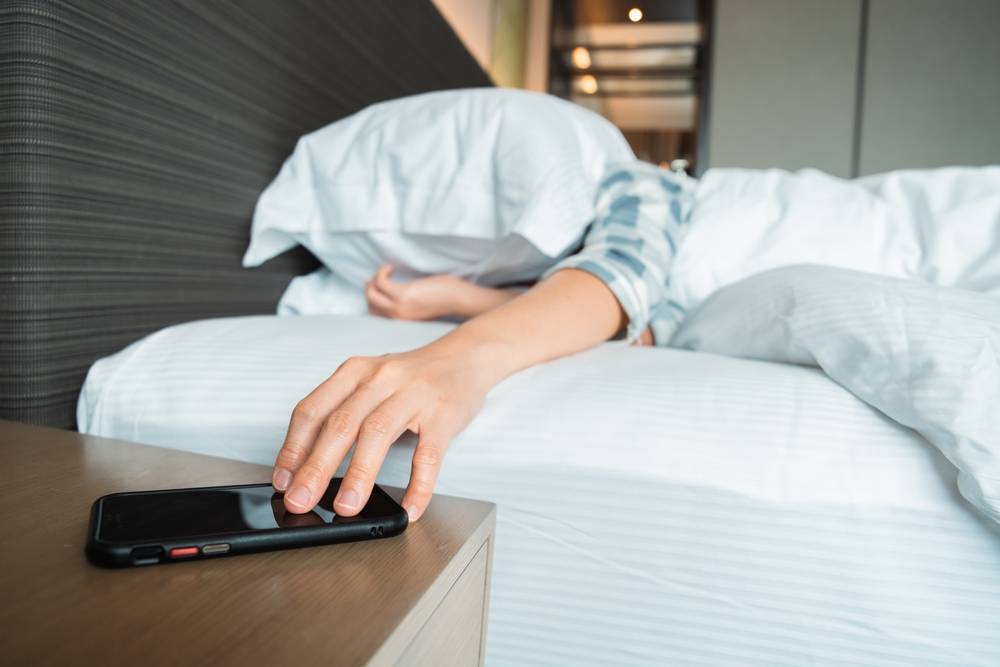Napping is a delightful indulgence we often succumb to, and while it may offer agreeable results, it also has disadvantages that could ironically leave us feeling more tired overall.
In this article, we lay out the benefits and drawbacks of napping, and how best to do it in support of a healthy sleep schedule.
Why Napping Is So Appealing
We all know that getting enough sleep is crucial for our physical and mental well-being. Yet for many of us, a good night’s rest seems to be paradoxically out of our reach. Research has revealed that poor sleep is a highly common problem throughout Asia, , which could be attributed to hectic schedules.
“Many people work very long hours, and when they go home, they have familial duties or chores. By the time they have time to relax, it is often done at the expense of their sleep,” shares Dr Garvi J Pandya, a Specialist in Advanced Internal Medicine and Sleep Physician at StarMed Specialist Centre, with The Straits Times.
This is where the temptation to nap comes in.
Naps can be rejuvenating, allowing us to restore some of the sleep we have been deprived of from the previous night. Naps also serve as brief mental escapes that we can slot into our day. It can seem like an oasis in a churning sea of busyness, and it’s no wonder many of us like to sneak in a quick afternoon snooze.
The Benefits of Napping
Boosting Alertness
In addition to reducing our sleepiness, a nap can make us more alert and focused. They improve overall cognition, enabling us to complete the rest of our day’s tasks more efficiently.
Memory Consolidation
Sleep plays an important role in memory consolidation, which refers to how our brains transform short-term memories into long-lasting ones. We can also experience this during naps.
Research has indicated that napping after gaining new information can help us retain that information better, and can help enhance learning.
Improved Mood
Beyond just lowering fatigue and improving mental performance, napping can also act as a mood booster. Studies have uncovered how napping can increase positivity, and even improve emotional control, such as having a greater tolerance for frustration.
While napping seems to help us become happier, more productive people, it can bring about some rather unfortunate side effects.
The Downsides of Napping
Sleep Inertia
Sleep inertia is that groggy feeling that can occur when you are aroused from a nap, especially if you’ve been in deep sleep. If you are already sleep deprived, you could also experience the effects of sleep inertia more intensely. Rather than waking up refreshed, your nap might get you feeling weary instead.
Interferes With Nighttime Rest
Napping for too long or too late in the day can also make it harder to fall sleep at night, This creates a vicious cycle where poor sleep at night leads to more napping during the day, which further impacts your overall rest quality.
Watch also: Having Trouble Sleeping? | Dr Seng Kok Han (Psychiatrist)
Depletes Leisure Time
If you take the time to nap, it also implies you will have less time for other activities. This means that if you are having a packed day, you may have to sacrifice any leisure time you have set aside during the day in order to get some shuteye.
These problems highlight why napping does not fully compensate for insufficient nighttime sleep, even if you use your naps to catch up on the hours you lost from the night before.
Furthermore, studies have shown that sleep regularity is more vital to your health compared to sleep duration. According to Dr Seng Kok Han, a Psychiatrist Consultant at Nobel Psychological Wellness Clinic, “It is important to have a regular sleep time and wake up time, which must be consistent during the days and over the weekends.”
It is sleep quality, and not quantity, that matters, and naps can only take you so far if you don’t follow a regular sleep schedule.
Napping Effectively
However, napping can still support us during the day, if we do it the “right” way.
- Keep It Short
While an hour-long nap may be good for those who are very sleep deprived, power naps tend to be shorter than that. Try not to nap for more than 30 minutes – go beyond that and you might wake up feeling groggy. Set an alarm to prevent yourself from oversleeping.
- Time It Right
Research shows that it is best to nap before 2pm. Ensure that you don’t nap too late in the day and negatively impact on your nightly routine.
- Find a Comfortable Environment
This is an element of sleep hygiene that will guarantee better quality rest. Choose a quiet, dark, and cool place to nap and you’ll be snoozing in no time.
- Set a Nap Routine
If you find daily naps beneficial for yourself, try establishing a regular nap schedule. Consistency helps your body recognise when it’s time to rest, making falling asleep and waking up easier.
Key Takeaway
Incorporating naps into your daily routine — when done correctly — can positively impact your well-being and productivity. So, the next time you feel an afternoon slump coming on, don’t feel guilty about taking a quick catnap. Your body and mind will thank you!


